Wine Without Borders
Senza Meja, a ground breaking new association of Italian and Slovenian winemakers
Why do winemakers form associations? Strength in numbers is the simplest answer. It’s much easier to promote what you do if you stand together with colleagues - and more fun. Often, it signifies a group that’s not being served by any existing institution.
25 young winemakers straddling the Italian/Slovenian border came together earlier this year to form Senza Meja. The nifty little name combines one Italian and one Slovenian word. It translates as “without borders” and describes itself as a “cross-border territorial association”.
Senza Meja has an HQ in the city of Gorizia, with its own enoteca (wine bar and shop) situated on Via Rastello. Visitors can enjoy a rapidly changing selection of member’s wines by the glass (at very competitive prices) and purchase bottles for take-away or enjoyment on the premises. It’s a buzzing, convivial space, and I highly recommend a visit. For the moment, opening hours are limited to Tuesdays and Fridays. Check the association’s Instagram account for up-to-date details.
If you read no further, know this: The opportunity to shop from this selection of wines has never existed before in Collio or Brda (never mind the neighbouring regions). For fans of artisanal wine from this part of the world, it’s a dream come true. You’ll also be served by the winemakers themselves.
I spoke with the group’s founder Nikolas Juretic, a Collio winemaker who spent 12 years working for pruning consultancy Simonit and Sirch before shifting to focus on his own project in 2018. Read more about his wines here.
As Juretic explained, the inspiration wasn’t just his. “Ivana [Radikon] started a tasting group with me and a few of her friends, about two years ago" he says. “Then I had the idea, why don’t we do a bit more than this? Just tasting is not enough.”
Senza Meja’s overriding focus is on the importance of organic farming. Every founder member is certified organic or biodynamic, or practising without certification - something that Juretic says could be taken on trust because the members are a close-knit group of friends.
Juretic told me this is one of the main reasons why membership of the Consorzio Collio doesn’t tick all the boxes for him or his colleagues. “The base of everything is organic farming, we believe a lot in this” he said “and that’s something that is missing in the consorzio. They’re still not giving it the right value.”
Equally importantly, Senza Meja is about the younger generation. “We haven’t set a limit to the age, but in our minds it’s about 40” he says, adding that “it’s important that the new generation stick together, respect the territory and make healthy wines.”
Most of the group are in their 20s and 30s. The youngest member is Toni Blažič, who is 17. He already has his own label, a delicious lightly macerated Souvignier Gris from the 2023 harvest.
Juretic clarified that the association is of individuals, not of wineries. So although many of the producers are established names, such as Gravner, Klinec or Movia, it’s the youngest family member working at the winery whose work and philosophy is represented.
Two nations, one culture
The association’s third pillar is its inclusion of growers on both sides of the border. For many people who live here, Friuli and Primorska are one region divided by an arbitrary line in the sand. The cross-border nature of Senza Meja has particular resonance in 2025, as the region’s twin cities Gorizia (Italy) and Nova Gorica (Slovenia) were jointly selected to be European Capital of Culture. The initiative, branded Go!, hails a new age of cooperation and tolerance in what was once a bloodied and divided land.
For now, the vast majority of Senza Meja’s members come from Collio and Brda - the two most famous border-hugging regions. Two are from nearby Carso, the coastal part of Friuli-Venezia Giulia that stretches down to Trieste. As yet, its Slovenian alter ego the Karst is unrepresented.
The remaining two Primorska sub-regions, Vipava and Istra, are also absent for the moment. Juretic hopes to rectify this, and is already in discussion with some potential Vipava members.
The association has a formal charter with a compact manifesto: the key requirements are organic or biodynamic farming, and spontaneous fermentation (no yeast additions). Juretic explained that “we need a group that is dynamic and open, so we all have to be a bit more flexible.” Senza Meja isn’t another radical group of natural winemakers: it has no policy on sulphite use, filtration, or many other aspects of winemaking.
The permissive approach allows space for a range of growers, from the minimal intervention purism of Klinec, Radikon and Štekar to more mainstream names such as Movia, Renato Keber and Stroppolatini. And as Juretic reminds me, it’s not the winery that is the member, but rather the individual.
Senza Meja members
Here’s a list of the 25 founding members, grouped by region. The winery appears in brackets, where it’s not clear from the individual name.
Brda SI
Anže Ivančič, Lan Kristančič (Movia), Kristian Keber, Kmetija Štekar, Maja Reja (Reia), Martin Klinec, Toni Blažič
For more on these growers, see https://themorningclaret.com/p/brda-orange-wine-guide-part-1
Collio IT
Gregor Pietro Viola (Gravner), Ivana Radikon, Jannis Paraschos, Kristian Keber (Edi Keber), Luca Dellisanti (Okús), Marco Pecorari (San Lurins), Marta Venica (Martissima), Matteo Bensa (La Castellada), Mitja Sirk, Nikolas Juretic, Tamara Podversic, Tereza Keber (Renato Keber), Valentina Terpin
For more on many of these growers, see https://themorningclaret.com/p/tmc-guide-collio-orange-wines-part-1
Aquileia IT
Carlo Montanar
Colli Orientali IT
Cora Basilicata (Le Due Terre), Davide Gaggiola (Fuorizona), Federico Stroppolatini
Carso IT
Jakob Zidarich, Peter Radovič
In addition to running the enoteca, the group plan several tasting events to showcase their wines later in the year. Beyond the promotional activities, another important function of an association like this is its ability to foster learning, through shared experience and discussion.
There is a powerhouse of talent within the ranks of these growers. I’m excited to see what they can achieve together.
Senza Meja’s wine bar & shop is located at Via Rastello 36, 34170 Gorizia GO, Italy.
Opening hours are currently 11:00 - 13:00 and 17:00 - 22:00 on Tuesdays and Fridays.


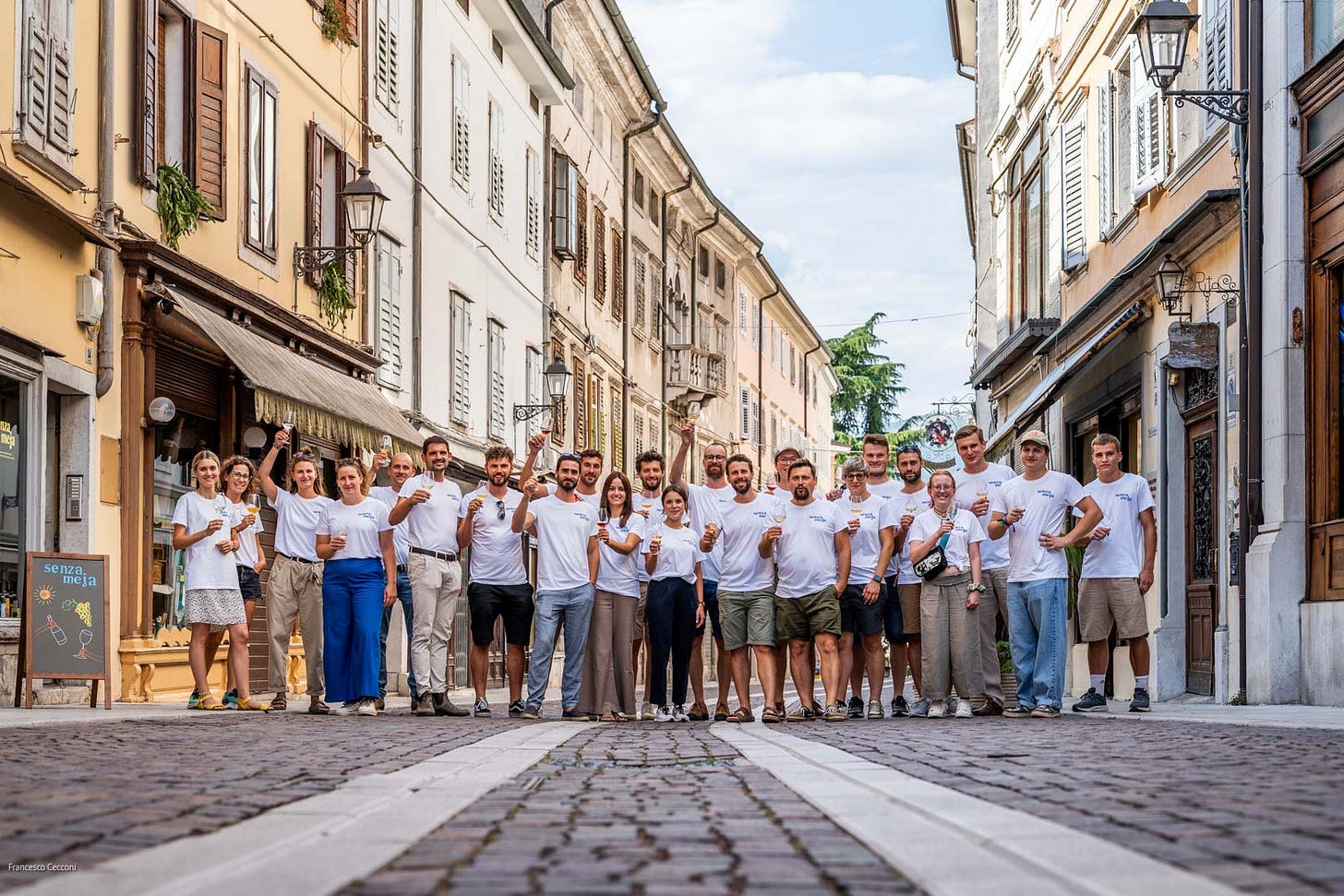
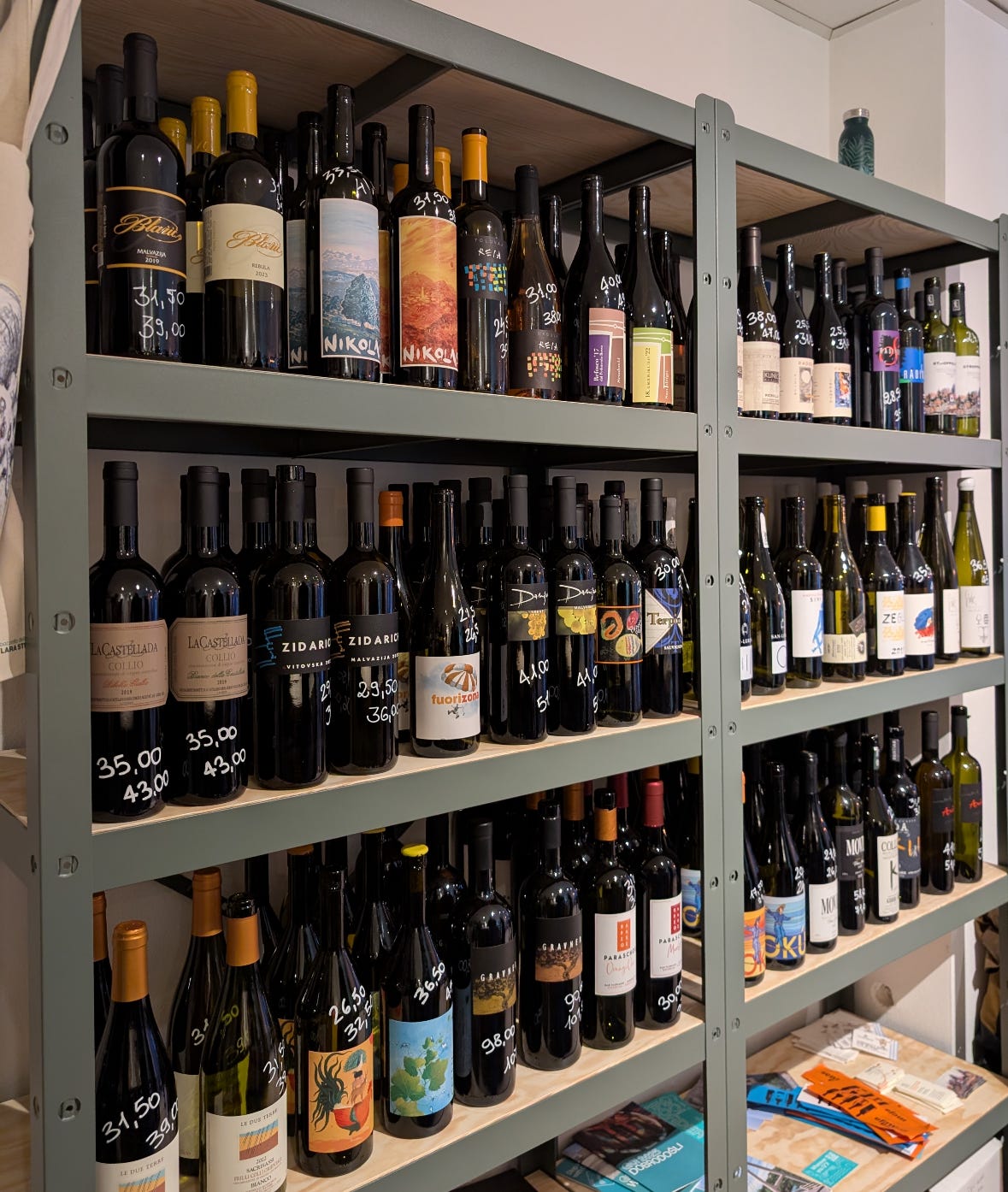
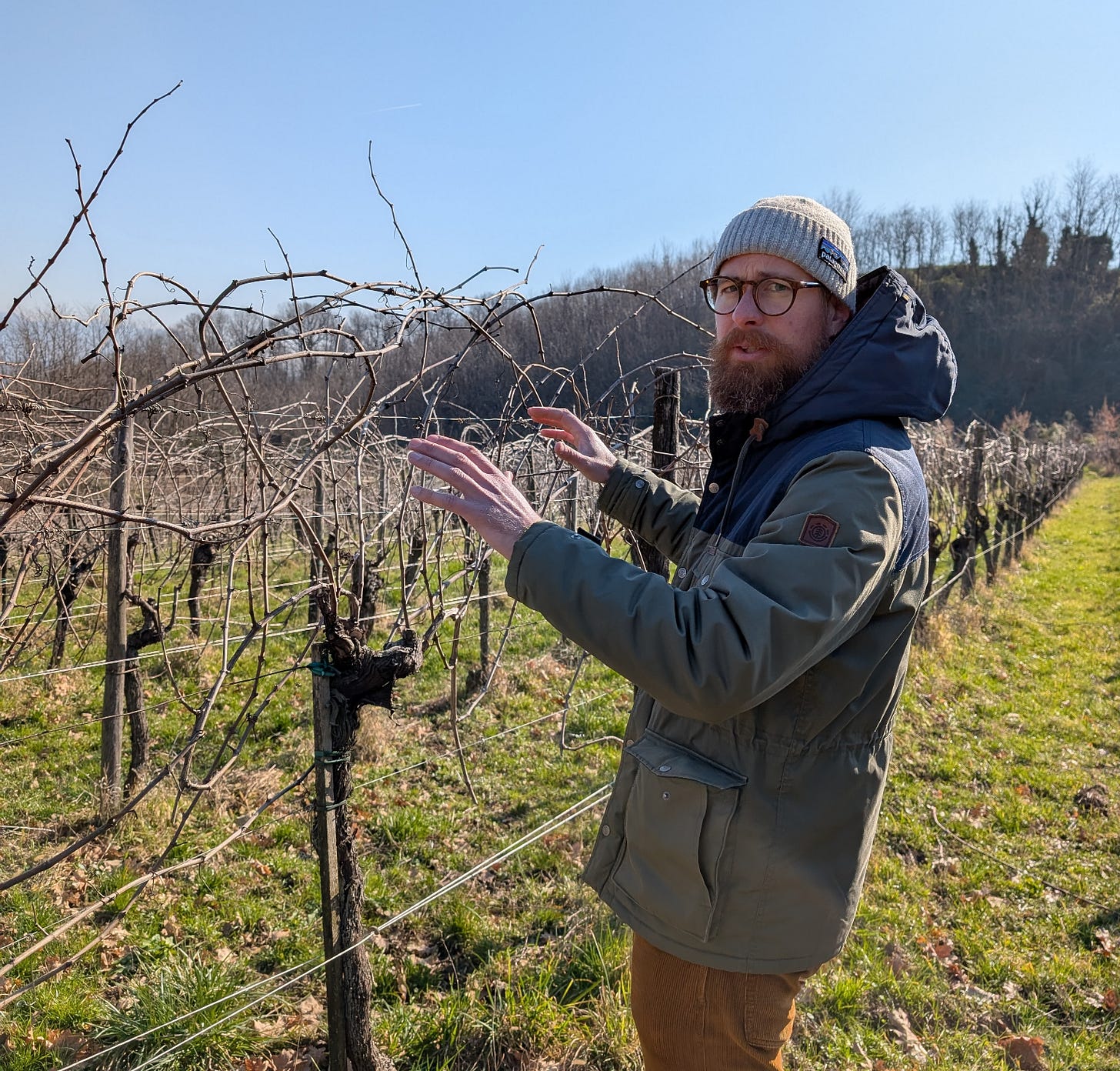
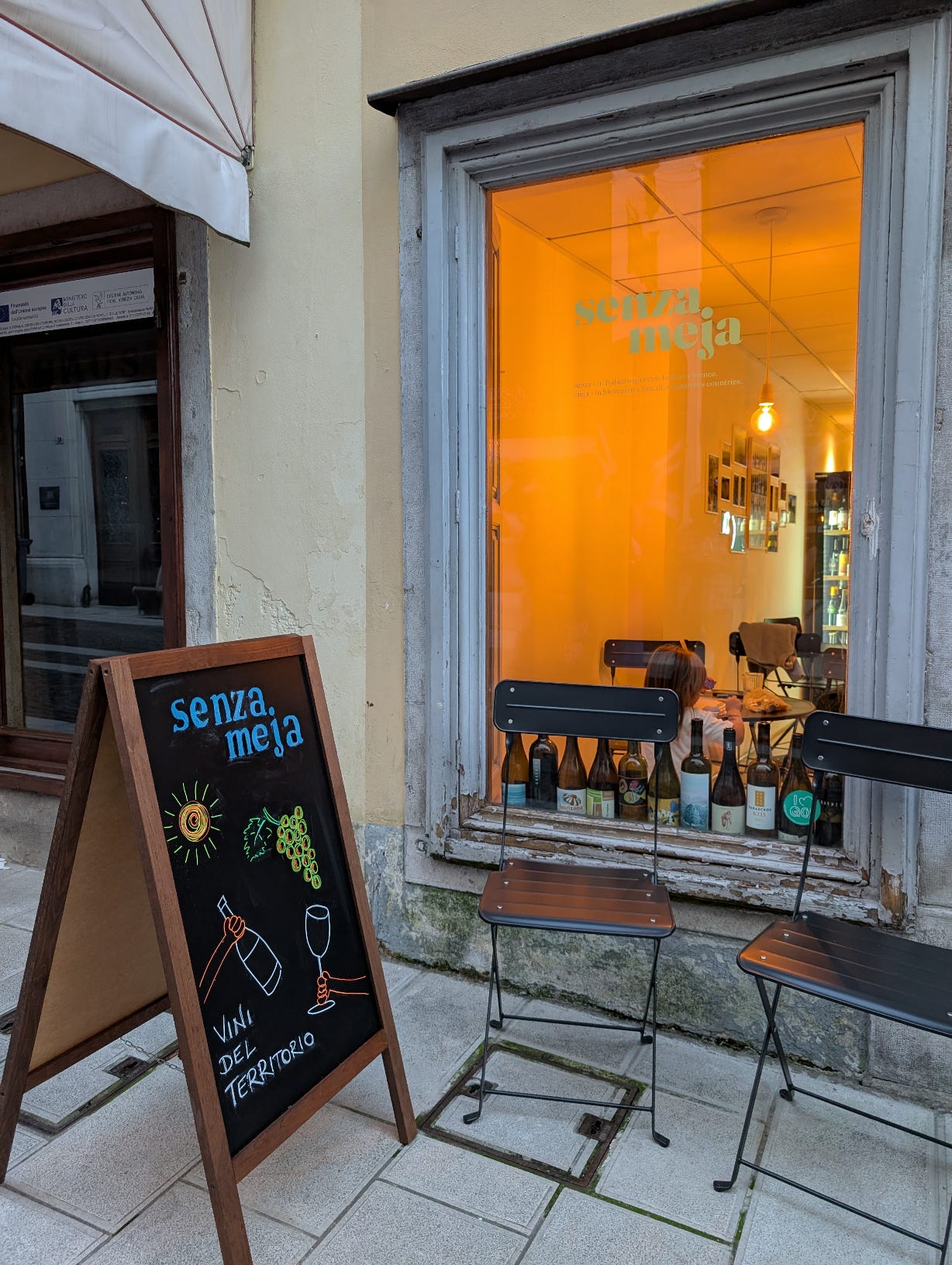
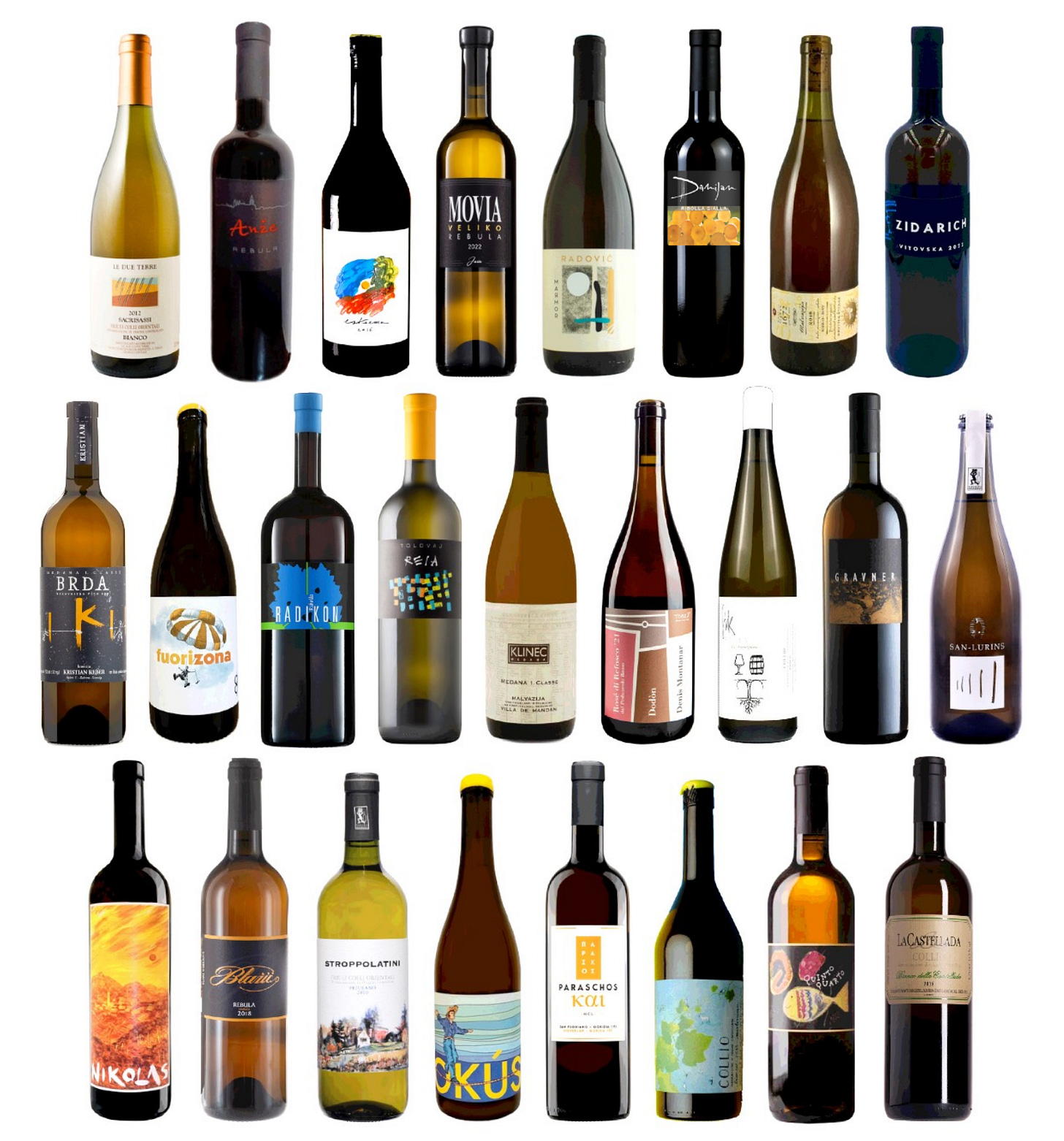
Bravo!
This is a brilliant move to show the world how wine grower collaboration can be done across borders. Kudos !